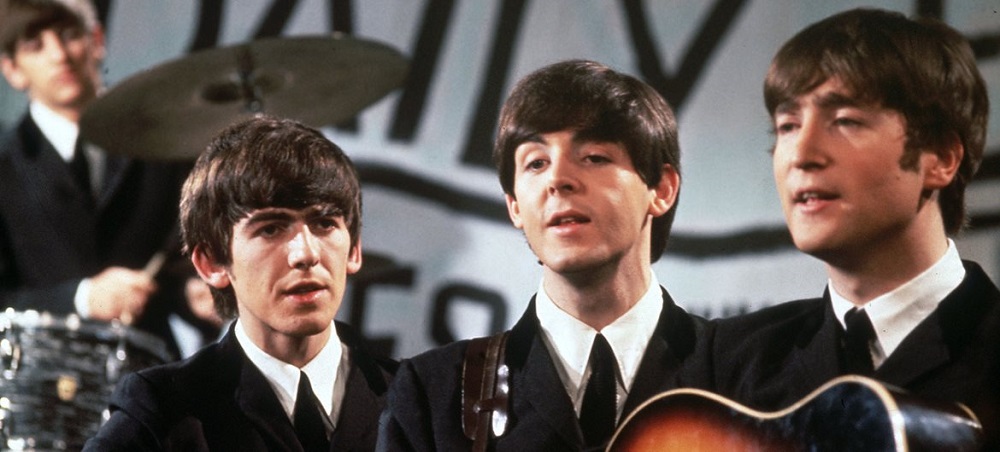Few bands in music history have made a more significant impact than The Beatles. The Fab Four revolutionized the entire music industry and left an indelible mark on popular culture that can still be felt today. However, even the most ardent Beatles fan might not know some more intriguing trivia surrounding the band and their storied career. With that in mind, we've compiled a list of some of the most unique and fascinating facts about the Beatles that you probably didn't know. Recording Techniques One reason for the Beatles' enduring legacy is the distinctive production style used on many of their most popular recordings. Producer George Martin pioneered advanced recording techniques, such as backward recording, tape looping, and the sound of crashing waves to add an ethereal atmosphere to songs...
next aeticle
Few bands in music history have made a more significant impact than The Beatles. The Fab Four revolutionized the entire music industry and left an indelible mark on popular culture that can still be felt today.
However, even the most ardent Beatles fan might not know some more intriguing trivia surrounding the band and their storied career. With that in mind, we've compiled a list of some of the most unique and fascinating facts about the Beatles that you probably didn't know.

BBC/ REUTERS | The Beatles have 16 of the 100 most successful tracks of all time
Recording Techniques
One reason for the Beatles' enduring legacy is the distinctive production style used on many of their most popular recordings. Producer George Martin pioneered advanced recording techniques, such as backward recording, tape looping, and the sound of crashing waves to add an ethereal atmosphere to songs like "Across the Universe." Additionally, the Beatles famously recorded their final album, "Let it Be," live on a London rooftop.
Breakup and Solo Careers
After a decade of incredible success, The Beatles disbanded in 1970. Each member pursued solo careers with varying degrees of success. Lennon, McCartney, and Harrison had successful solo ventures, while Starr achieved hits as a solo artist and became an accomplished actor.

Tony Perkins/ Twitter | The members of the band were John Lennon, Paul McCartney, George Harrison, and Ringo Starr
Enduring Popularity
Even decades after their breakup, The Beatles' music captivates new generations. Their timeless songs continue to be celebrated and covered by artists of all genres. The Beatles' influence can still be felt in contemporary music, and their legacy remains unparalleled in the history of popular music.
Shea Stadium Concert
The Beatles' concert at New York's Shea Stadium on August 15, 1965, marked a significant milestone in the history of live music. With an attendance of over 55,000 screaming fans, it was one of the first stadium concerts of its kind. The event set a precedent for the massive stadium tours that would become commonplace in the music industry.
Album Cover Artwork
The Beatles' album covers became iconic and innovative in their own right. The cover of their album "Sgt. Pepper's Lonely Hearts Club Band" (1967) is particularly noteworthy. Designed by artists Peter Blake and Jann Haworth, it featured a collage of famous faces, including the band members, creating an elaborate and visually captivating image that reflected the album's musical diversity.

Mark and Colleen Hayward/ Redferns | The band broke up due to creative differences, money problems, and a certain band member's girlfriend
Musical Achievements
The Beatles' musical achievements are numerous and record-breaking. They were the first band to have consecutive number-one albums in the United States, with eight albums reaching the top spot.
Their album "Abbey Road" (1969) holds the distinction of spending the most weeks at number one on the UK charts. The Beatles also received multiple Grammy Awards, including Album of the Year for "Sgt. Pepper's Lonely Hearts Club Band."
Struggles With Censorship
Many of the Beatles' songs featured seemingly innocuous lyrics or subject matter. Still, the conservative mores of the time led to several incidents where their work was censored or banned outright.
For example, in the United States, radio stations refused to play "I Am the Walrus" because of the line "Semolina Pilchard climbing up the Eiffel Tower." Meanwhile, several countries, including Spain and South Africa, banned the song "Lucy in the Sky with Diamonds" because they interpreted it as an ode to drugs.










